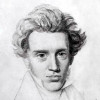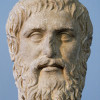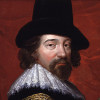“ For the discovery of a man' s self, by the tracts of his countenance, is a great weakness and betraying; by how much it is many times more marked, and believed, than a man's words. ”
Francis Bacon, The Essays of Francis Bacon (1597). copy citation
| Author | Francis Bacon |
|---|---|
| Source | The Essays of Francis Bacon |
| Topic | weakness discovery |
| Date | 1597 |
| Language | English |
| Reference | |
| Note | |
| Weblink | http://www.gutenberg.org/files/575/575-h/575-h.htm |
Context
“For he that talketh what he knoweth, will also talk what he knoweth not. Therefore set it down, that an habit of secrecy, is both politic and moral. And in this part, it is good that a man's face give his tongue leave to speak. For the discovery of a man' s self, by the tracts of his countenance, is a great weakness and betraying; by how much it is many times more marked, and believed, than a man's words.
For the second, which is dissimulation; it followeth many times upon secrecy, by a necessity; so that he that will be secret, must be a dissembler in some degree. For men are too cunning, to suffer a man to keep an indifferent carriage between both, and to be secret, without swaying the balance on either side.”
source



